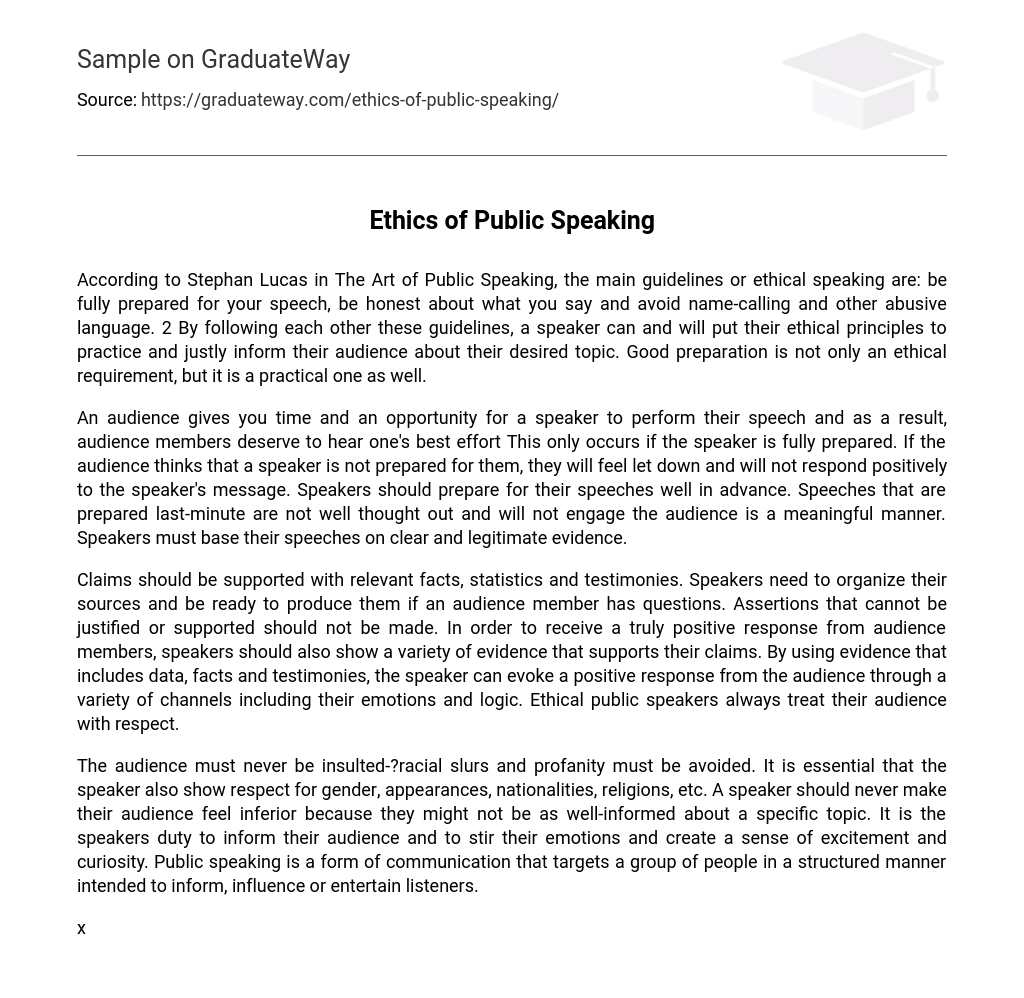According to Stephan Lucas in The Art of Public Speaking, the main guidelines or ethical speaking are: be fully prepared for your speech, be honest about what you say and avoid name-calling and other abusive language. 2 By following each other these guidelines, a speaker can and will put their ethical principles to practice and justly inform their audience about their desired topic. Good preparation is not only an ethical requirement, but it is a practical one as well.
An audience gives you time and an opportunity for a speaker to perform their speech and as a result, audience members deserve to hear one’s best effort This only occurs if the speaker is fully prepared. If the audience thinks that a speaker is not prepared for them, they will feel let down and will not respond positively to the speaker’s message. Speakers should prepare for their speeches well in advance. Speeches that are prepared last-minute are not well thought out and will not engage the audience is a meaningful manner. Speakers must base their speeches on clear and legitimate evidence.
Claims should be supported with relevant facts, statistics and testimonies. Speakers need to organize their sources and be ready to produce them if an audience member has questions. Assertions that cannot be justified or supported should not be made. In order to receive a truly positive response from audience members, speakers should also show a variety of evidence that supports their claims. By using evidence that includes data, facts and testimonies, the speaker can evoke a positive response from the audience through a variety of channels including their emotions and logic. Ethical public speakers always treat their audience with respect.
The audience must never be insulted-?racial slurs and profanity must be avoided. It is essential that the speaker also show respect for gender, appearances, nationalities, religions, etc. A speaker should never make their audience feel inferior because they might not be as well-informed about a specific topic. It is the speakers duty to inform their audience and to stir their emotions and create a sense of excitement and curiosity. Public speaking is a form of communication that targets a group of people in a structured manner intended to inform, influence or entertain listeners.
x





